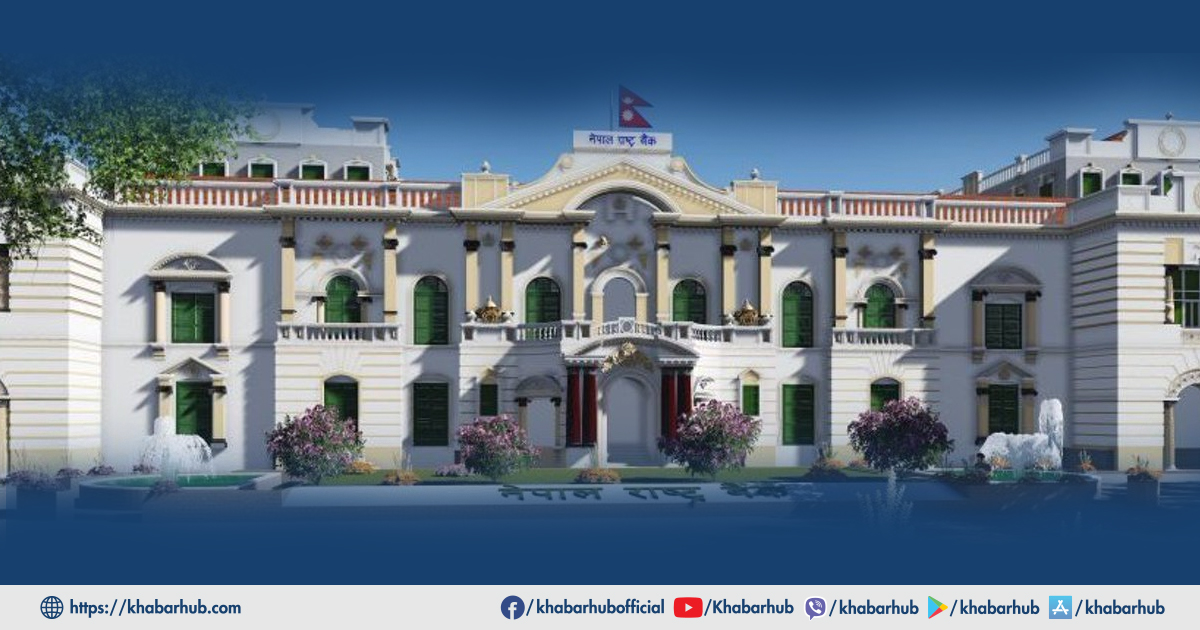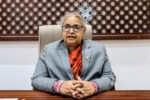KATHMANDU: The term of Nepal Rastra Bank (NRB) Governor Maha Prasad Adhikari is set to end on April 6.
The government has already formed a recommendation committee, headed by Finance Minister Bishnu Poudel, to appoint Adhikari’s successor.
Section 15 of the Nepal Rastra Bank Act, 2058 BS, stipulates that the committee formed by the government can ‘recommend to the Council of Ministers the names of three individuals from among distinguished professionals and deputy governors in the fields of economics, monetary policy, banking, finance, commerce, management, and commercial law.’
Based on this recommendation, the government appoints one person as the Governor.
However, the act does not mandate inviting applications, holding competitive exams, conducting interviews, or appointing the governor based on merit.
As a result, the government appoints the governor following the committee’s recommendation, without focusing explicitly on merit-based selection.
Governor Adhikari has faced criticism for being weak in policy decisions and for implementing monetary policies perceived as influenced by political affiliations.
In the past, the Nepali Congress- Maoist Center coalition government attempted to remove him, citing his uncooperative stance. Nevertheless, he is leaving after completing his term, as the Supreme Court intervened in the matter.
It is understood that no one is entirely successful in fulfilling all responsibilities.
Among the various challenges faced by the economy, the governor should be able to address average issues within the scope of the Nepal Rastra Bank’s mandate.
Currently, while Nepal’s external economic indicators are positive, internal economic conditions, as reported by the Nepal Rastra Bank, have shown limited progress.
Despite an increase in investable liquidity within the banking sector, investment remains stagnant.
The rate of non-performing loans in the banking sector is on the rise, and some banks are facing serious financial difficulties.
Additionally, the issue of the Nepal Rastra Bank’s role in regulating the increasingly notorious cooperative sector has come to the forefront.
The governor plays a significant role in addressing problems within the banking and financial sectors and promoting overall economic dynamism.
Meanwhile, former banker Nar Bahadur Thapa states, “A capable person with strong connections to top political leadership is necessary.”
Thapa, a former executive director and analyst of Nepal Rastra Bank, argues that the existing law requires the formation of a search committee to appoint the governor and that its responsibility is to find a qualified candidate.
However, he points out that the government often appoints individuals based on political loyalty rather than merit, which undermines the committee’s intended role.
“The legal framework will be reduced to a mere formality; political parties will handpick names through the process, making the committee’s relevance meaningless,” Thapa says.
“The legal provisions are not being implemented as intended, and the appointment process has become a tool for political leaders to appoint individuals they favor.”
Thapa criticizes the practice of using “hype” to create an illusion of merit-based appointments, especially in cases where the new governor fails to address critical issues like hundi (informal money transfers) and capital flight, which have recently emerged as significant concerns.
He emphasized that the Rastra Bank and its governor play a crucial role in solving these problems.
For this reason, he advocates for the appointment of a governor who can operate independently, while still maintaining the trust of the government, as per the Rastra Bank Act.
“We need a governor who can develop the private sector while protecting the autonomy of the central bank,” says Thapa.
“We need someone who can earn the government’s trust and solve the issues within the banking sector without succumbing to political pressures.”
Thapa also points out that people with significant financial resources have used their influence to escape scrutiny and now seek loans at favorable interest rates. These individuals or groups, he argues, have considerable influence in the banking sector.
He further argues that a non-political individual cannot work independently as the governor of Nepal Rastra Bank, as employee unions and changing governments would likely force out any governor attempting to operate independently.
“Some argue that a non-political person should be the governor, but I find this idea absurd,” Thapa says.
“Politics is fluid, and employee unions are powerful. A person close to major political parties and leadership is essential for survival. If such a person is not appointed, they won’t last long.”
Thapa concludes that the governor should be someone who can gain the trust of both the government and the private sector, promote credit flow to priority areas, and act as a representative of the Nepal Rastra Bank in driving economic development.
Meanwhile, speculation is currently rife regarding potential candidates for the next governor of Nepal Rastra Bank, with several individuals from various sectors actively positioning themselves.
Some have already made their presence felt by engaging with the power centers.
According to Sub-section 3 of Section 15 of the Nepal Rastra Bank Act, 2058, the recommendation committee is required to “recommend three names to the Council of Ministers from among distinguished individuals and Deputy Governors in the fields of economics, monetary policy, banking, finance, commerce, management, and commercial law.”
Additionally, the act mandates that one of the recommendations must be a Deputy Governor of the Nepal Rastra Bank. Among the contenders, Senior Deputy Governor Neelam Dhungana has been actively campaigning for the post. She is reportedly close to Prime Minister KP Sharma Oli and has made efforts to influence decision-makers, including media lobbying.
Another possible contender is Bam Bahadur Mishra, also a Deputy Governor. With his qualifications and close ties to Prime Minister Oli, Mishra is a prominent name in the running.
In addition, two executive directors at the Central Bank, Dr. Prakash Kumar Shrestha and Gunakar Bhatta, are strong contenders.
Shrestha served as the vice-chairman of the National Planning Commission under UML General Secretary Shankar Pokharel’s tenure as Chief Minister of Lumbini.
Bhatta, meanwhile, worked as an economic advisor when Congress leader Dr. Prakash Sharan Mahat was Finance Minister. Both have solid political access, with strong relations with top leaders from the Nepali Congress and CPN-UML.
Given the Congress-UML coalition government, the appointment of the governor is expected to be made with the consent of both parties, suggesting that other candidates with connections to high-level leadership from these two parties are also in the race.
However, there is a legal provision that a governor cannot be a member of any political party at the time of appointment.
This issue was highlighted during the tenure of Governor Maha Prasad Adhikari, who faced controversy after his affiliation with the UML’s finance department.
Meanwhile, Nabil Bank CEO Gyanendra Dhungana has resigned from his post and is now lobbying for the governor’s role.
Dhungana, who is close to the Chaudhary Group led by Binod Chaudhary, is seen as a candidate that the Nepali Congress may support.
Prabhu Bank CEO Ashok Sherchan is also reportedly in the running. Though he has not yet resigned from his position, his good relationship with Prime Minister Oli puts him in contention.
Additionally, the name of Sushil Bhatta, a former executive officer of the Investment Board, has been linked to the governor’s post.
The Bhatta family holds significant political influence across all major parties, making him a likely candidate.
Gokarna Awasthi, the Director General of the Federation of Nepalese Chambers of Commerce and Industry, has also expressed interest in the role.
Awasthi, who has strong business connections and close ties with Nepali Congress President Sher Bahadur Deuba, is being discussed as a potential candidate.
In addition to those named above, other individuals, including CEOs of banks and former secretaries, are also being considered. However, the committee led by Finance Minister Poudel will ultimately recommend only three names for the governor position.









Comment